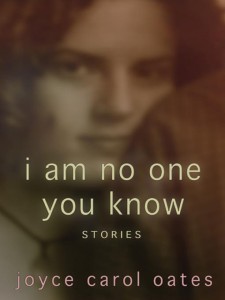Joyce Carol Oates’s I am No One You Know is a incredibly good series of short stories. I have been reading it non-stop these days. Digging in cruelty and darkness in social marginals deeply, with simple words and clear narration, Oates does show her sympathy to all her characters. Meanwhile, no clear standpoint is given by the author, allowing rooms for readers to comprehend themselves. That’s what a good story should be–not illustrating a grand theory, nor teaching a lesson, but splaying an open end to let you think.
Take The Girl with the Blackened Eye as an example. It is a story about a girl being raped by a man. Even though the man treats her badly, as well as other victims, for some reasons that are unspoken by the narrator, the man did not kill her. He let her go at last. “Know what, girl? You are not like the others. You’re special.” Due to his inarticulate kindness, the girl shows subtle gratitude to him somehow. Her feelings were messed up. At some moments she could escape, but she didn’t, seem like showing loyalty to the man. Even after she was rescued, she got the feelings that the men who raped her was more than only a decadent criminal, but a human being with integrity instead. When she resumed to normal life, she still always thought of that man. “Sure, I see him sometimes. More often lately. On the street, in a passing car. In profile, I see him.”
Oates is not only condemning the cruelty of rape, which I think it may be one of her aims, but most importantly, she shapes a fully character with different aspects of life, making it alive on paper. Characters have struggles among themselves, but they resolves at last, in their own ways. Not simply the bad being punished and the good being rewarded, complex humanity sparks in every line in her stories.

